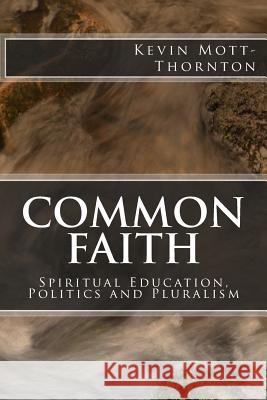Common Faith: Spiritual Education, Politics and Pluralism » książka
Common Faith: Spiritual Education, Politics and Pluralism
ISBN-13: 9781494321444 / Angielski / Miękka / 2014 / 274 str.
Common Faith is a philosophical exploration of the political and social implications of introducing a programme of spiritual education into schools in a modern pluralist democracy. It offers a detailed critique of a range of political perspectives including liberalism, pluralism, communitarianism, secularism and conservatism. It is often argued that both governments and schools should take an active interest in the spiritual and moral development of young people. This book is an attempt to show that philosophical analysis has an important part to play in the process of educational policy making in this area. It is an exploration of educational and political ideals, designed to throw light upon the logical relations between them. There are two distinct but overlapping aspects of the discussion of spiritual development as an educational aim. First, there are questions connected with the meaning of spirituality itself and the appropriateness of using such terminology in the educational context. The book argues for a procedural characterisation of 'common spirituality', applicable to all, and suggests that a clear distinction should be made between this and the idea of 'spiritual development', which is inevitably linked to some particular understanding of the good life. Secondly, the author explores the question of whether a suitable methodology can be established for the promotion of spiritual development in schools that is consistent with the particular political perspectives that currently inform our understanding of education. The author questions whether any common approach to spiritual development, based upon normative or descriptive ideas about the nature of the national culture, can be either educationally adequate or politically acceptable. The communitarian, secularist and popular liberal approaches to personal education are all examined and found wanting, before detailed arguments are presented in favour of a conservative approach which nurtures, rather than promotes, pluralism. Along the way, the book offers a detailed analysis of the models of human spirituality implicit in the writings of a range of philosophers, including John Dewey, Alistair MacIntyre and Charles Taylor.
Zawartość książki może nie spełniać oczekiwań – reklamacje nie obejmują treści, która mogła nie być redakcyjnie ani merytorycznie opracowana.











